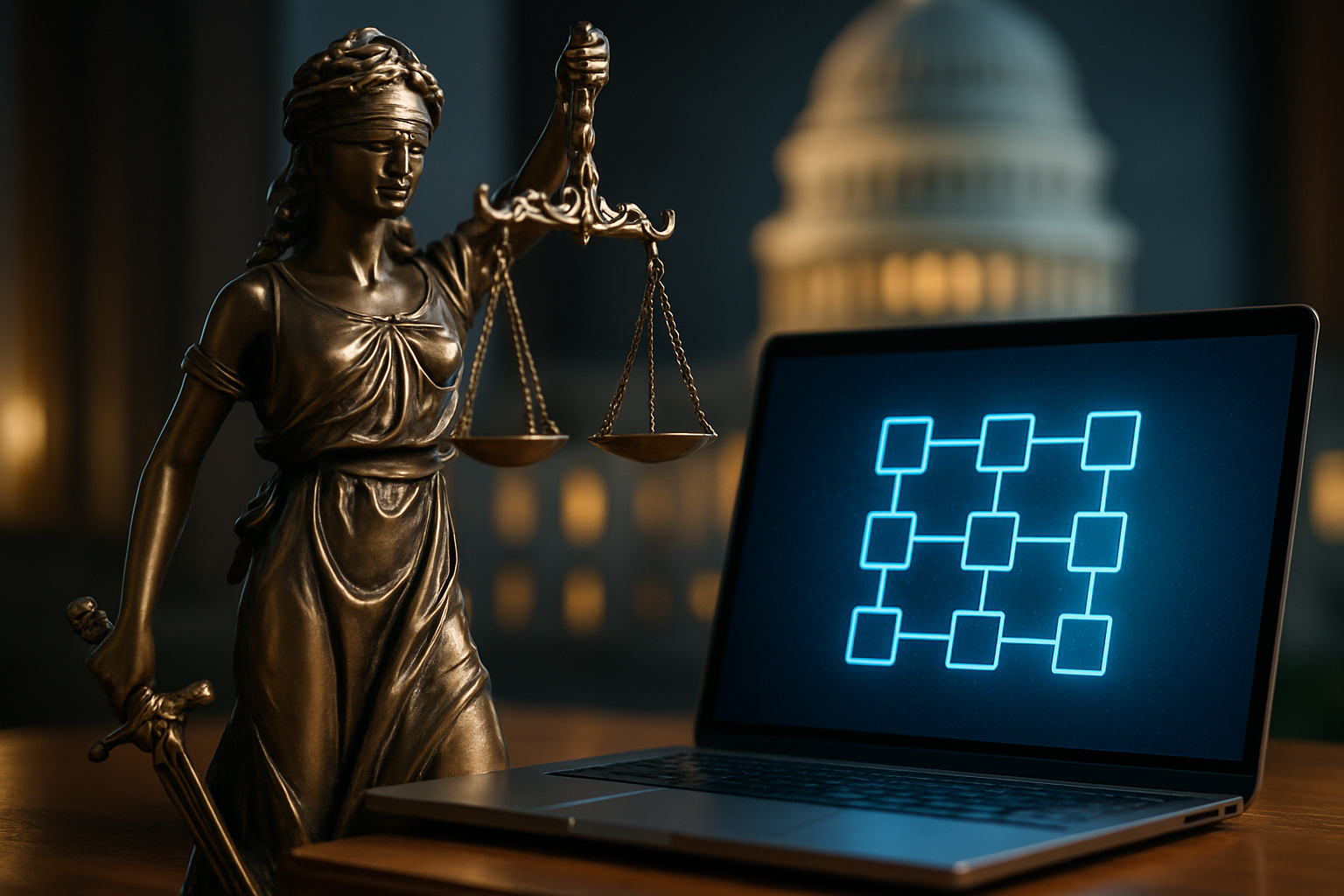Legal Implications of Blockchain in Government Operations
In an era of rapid technological advancement, blockchain technology is emerging as a potential game-changer for government operations. This innovative distributed ledger system, originally conceived for cryptocurrency transactions, is now finding its way into various sectors of public administration. As governments worldwide explore blockchain's applications, a host of legal questions and implications arise, challenging traditional regulatory frameworks and pushing the boundaries of existing laws.

Regulatory Challenges and Legal Uncertainties
As governments begin to integrate blockchain into their operations, they face a complex web of regulatory challenges. Existing laws and regulations, designed for centralized systems, often struggle to accommodate the decentralized nature of blockchain. Questions arise regarding jurisdiction, liability, and enforcement in a system where data is distributed across multiple nodes. Lawmakers and regulators must grapple with how to adapt current legal frameworks to this new paradigm or whether entirely new laws are necessary.
Data Protection and Privacy Concerns
One of the most pressing legal issues surrounding blockchain in government is the tension between data transparency and privacy rights. While blockchain’s immutability and transparency can enhance accountability in government operations, it also raises concerns about the protection of sensitive personal information. Governments must navigate the delicate balance between leveraging blockchain’s benefits and ensuring compliance with data protection laws such as the General Data Protection Regulation (GDPR) in the European Union.
Smart Contracts and Legal Enforceability
The concept of smart contracts, self-executing agreements with the terms directly written into code, presents both opportunities and challenges for government operations. These automated contracts could potentially streamline various administrative processes, from procurement to social benefits distribution. However, questions about their legal status and enforceability remain. Courts and legislators must determine how to interpret and enforce these digital agreements within existing contract law frameworks.
Blockchain-Based Identity Management
Blockchain technology offers promising solutions for secure and efficient identity management systems. Governments could use blockchain to create tamper-proof digital identities for citizens, potentially revolutionizing everything from voter registration to access to public services. However, the implementation of such systems raises critical legal questions about data ownership, consent, and the right to be forgotten. Policymakers must carefully consider how to balance the benefits of blockchain-based identity management with the protection of individual rights and liberties.
Cross-Border Governance and International Law
The borderless nature of blockchain technology presents unique challenges in the realm of international law and governance. As governments explore blockchain for cross-border transactions and collaborations, they must navigate complex issues of jurisdiction and sovereignty. The lack of a central authority in blockchain systems complicates traditional notions of governance and raises questions about how international disputes involving blockchain-based government operations would be resolved.
The Road Ahead: Legal Adaptation and Innovation
As blockchain technology continues to evolve and find new applications in government, the legal landscape must adapt accordingly. This will likely involve a combination of reinterpreting existing laws, crafting new legislation, and developing international agreements to address the unique challenges posed by blockchain. Legal professionals and policymakers will need to work closely with technologists to ensure that the regulatory framework keeps pace with technological advancements while protecting the rights and interests of citizens.
In conclusion, the integration of blockchain technology into government operations represents a significant shift in how public administration functions. While it offers numerous potential benefits, it also brings a host of legal implications that must be carefully considered and addressed. As governments around the world continue to explore and implement blockchain solutions, the legal community faces the challenge of developing a robust and flexible framework that can harness the technology’s potential while safeguarding the principles of good governance and the rule of law. The coming years will be crucial in shaping the legal landscape for blockchain in government, with far-reaching consequences for public administration, citizen rights, and the very nature of governance in the digital age.





